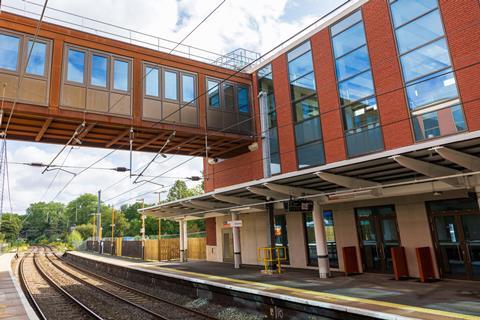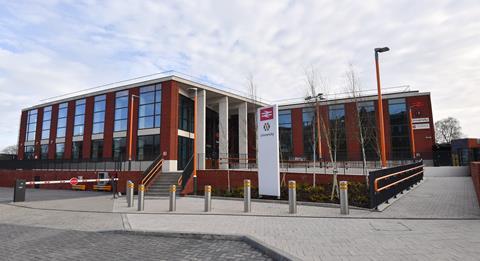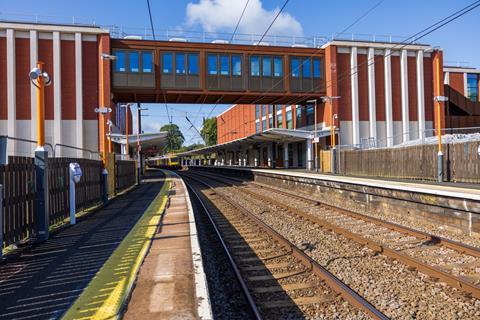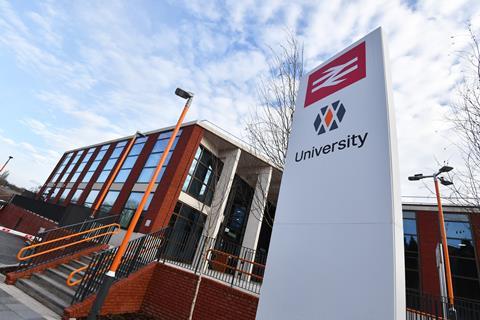
UK: A three-year project to increase passenger capacity at University station on Birmingham’s Cross City Line was completed with the opening of two buildings on January 28.
The station was designed for 500 000 passengers/year when it opened in 1978, but expansion of the university and Queen Elizabeth Hospital mean it is now one of the busiest in the region, with up to 3·5 million passengers/year. The rebuild is designed for up to 7·2 million passengers/year.

The station remained operational during the complex construction programme, which required materials to be lifted onto an island between the railway and a canal.
The first stage involved providing longer and wider platforms and new canopies ahead of the 2022 Commonwealth Games.
The buildings which have now been opened include wider entrances, stairways and exits to the university and hospital, more space to circulate and wait, lifts to the platforms and a larger ticket office. There is also space for a cafe or shop, and a medical facility on the first floor.
The project was led by Transport for West Midlands and the West Midlands Rail Executive, working with the university, NHS University Hospitals Birmingham Trust, the city council, the Department for Transport, Network Rail, West Midlands Trains and CrossCountry.
The delivery partners were a SLC-AECOM joint venture and VolkerFitzpatrick.

‘It’s been clear for some time that a new fit-for-purpose station was needed’, said Mayor of the West Midlands Andy Street. ‘I’m pleased that finally — despite the sometimes less than ideal pace of progress — we can unveil the new University station.’
He said it is ’a high-quality facility that will serve local people in the months and years ahead’.

Cllr Mike Bird, WMCA portfolio holder for transport, said ‘University may now be complete but our work on the railways will not stop there — we have construction well under way on five new stations in Birmingham and the Black Country which will offer our communities even better connections to the wider region. There are also plans in the pipeline to develop even more stations.’



